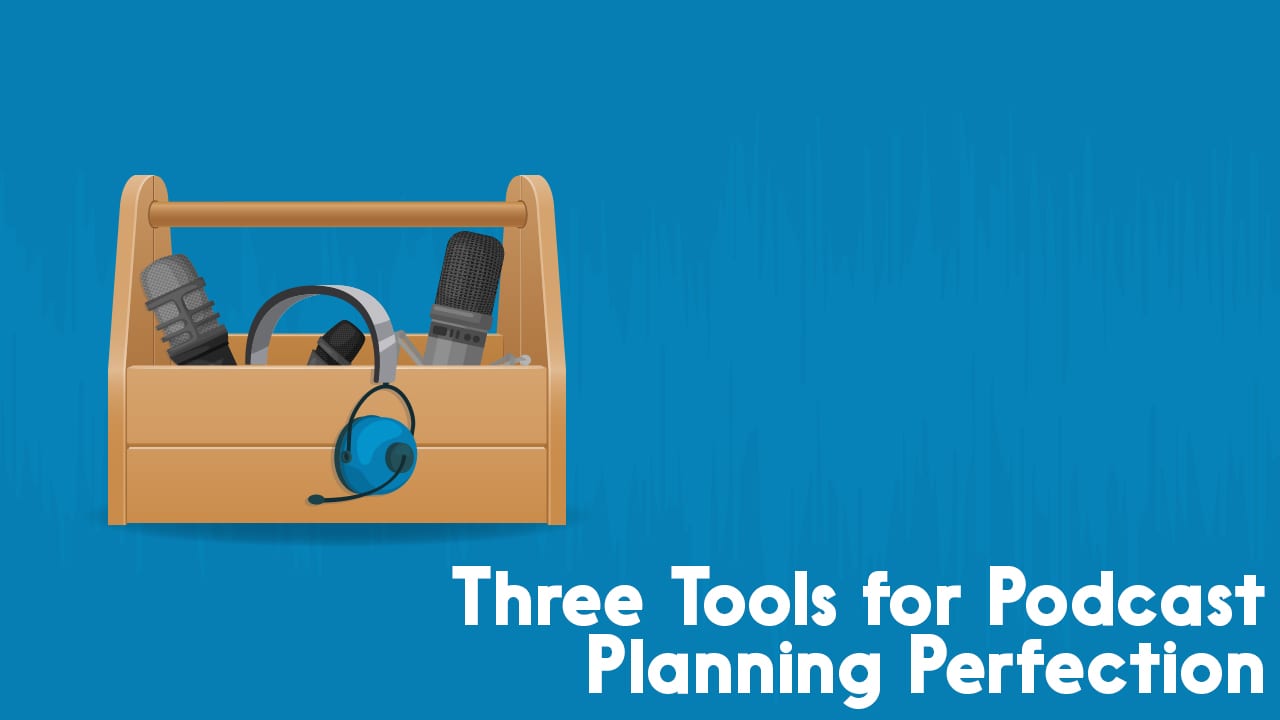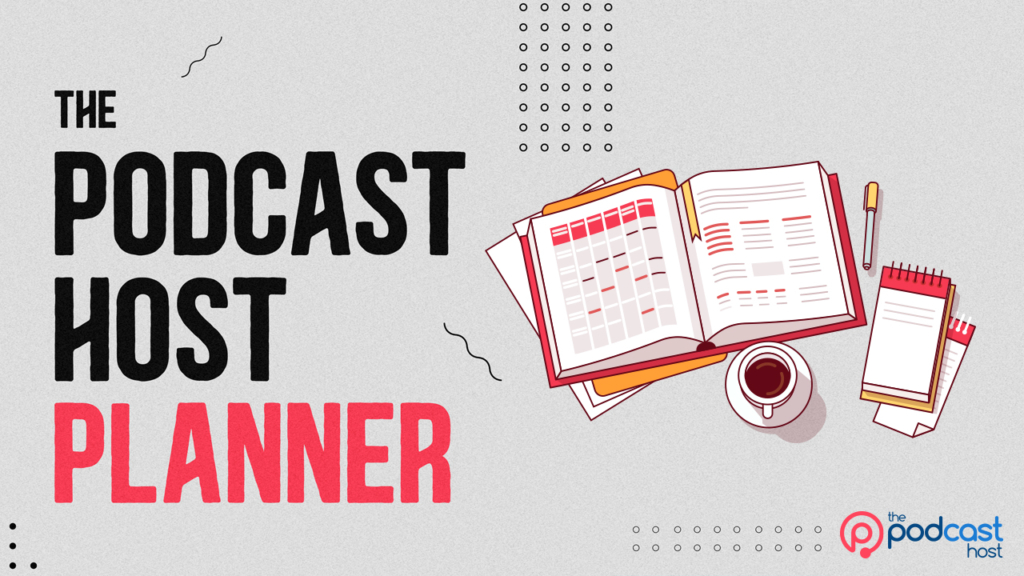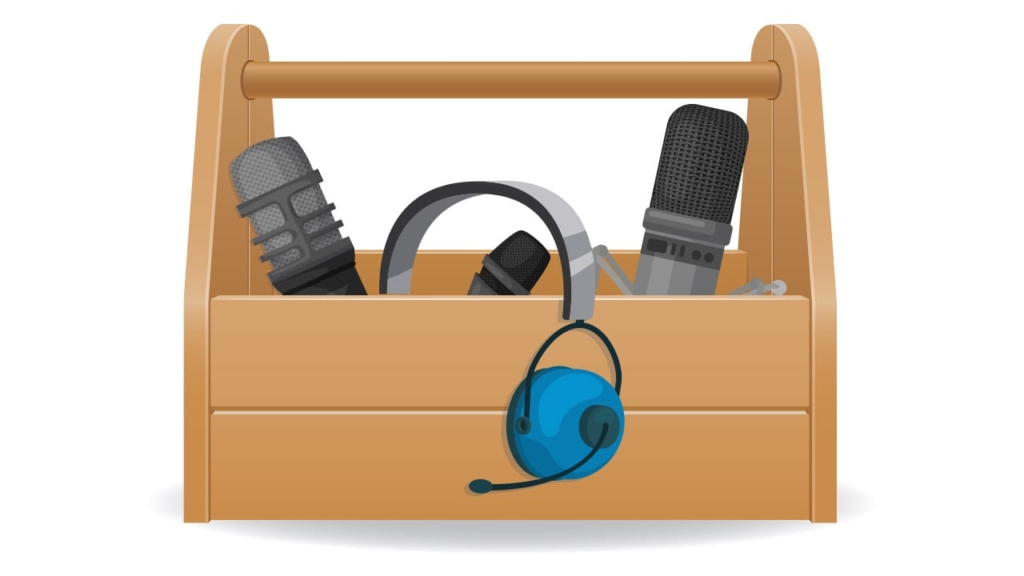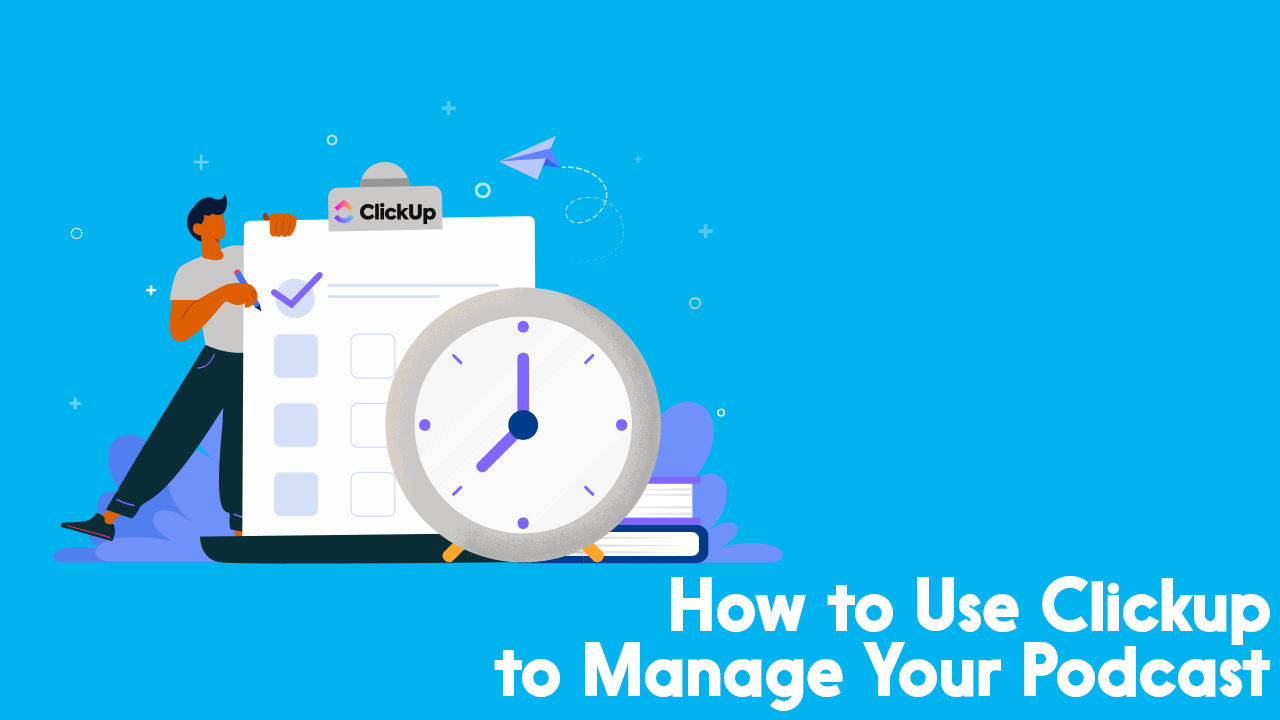3 Tools for Podcast Planning Perfection

A blank page to a writer, or an empty canvas to an artist, can be daunting. Where do you begin? How do you start? The same questions probably strike you when you’re considering your next podcast episode. Producing an individual podcast or an entire series isn’t easy. But, being a better podcast planner can increase your podcasting productivity dramatically. If you create a podcast template, you can have as much freedom to be creative within that framework, while still getting your episodes published on time.

Looking for a Physical Podcast Host Planner?
There’s a lot to be said for physical journal-style podcast planners. Having a tangible book in your working space is a good prompt and accountability buddy. Our Podcast Host Planner will help you organise, launch, and grow your podcast. Within its pages you’ll find the tools and templates to plan everything, from big picture goals, to edit timecodes, and loads more.
Right, on with the guide…
Outline, Write, Edit
To dramatically improve your efficiency, follow the simple plan of creating an outline, writing (or planning) the structure of your show, and then editing, as distinct phases.
Whether you write out or simply use this middle phase as a pure plan, it’s important to write first, and edit later. Writing is a creative task, while editing is very much a logical one. Write the first draft, and ignore the temptation to edit as you go. Instead, take a break, and go for a walk. Then revisit your first draft as a ruthless editor.
Podcast Planner Tool #1: The Outline
Writing your outline is the most critical stage in the process. This is where you map out your intro and outro and format to set up the building blocks of your podcast episode. Then, you can save this as a podcast template. You can use that template for any episode, just fill in the content you want to explore when you’re planning future episodes.
Not only will it make you a more efficient podcaster, but also it’ll ensure that your final show has a structure that works.
I’ve trialled a host of different outlining methods and tools over the years.
Text-Based Outlining
You can use any text editor or word processor to create an outline for your show. The simplest way is to produce a bullet point list of the show. Managing, storing and retrieving multiple text documents can be a challenge. If you like the simple text approach, I’d recommend you use Evernote. It works across all devices and platforms and is especially handy for capturing ideas and thoughts and storing them for later.
Pen & Paper Outlining
Some of you might prefer the old fashioned ‘pen and paper’ approach. Some people I know prefer this approach as it strips away any technology interference, helping them think more clearly.
You could get yourself a dedicated notepad for outlining and planning your podcast or simply use a sheet of A4 paper. Whatever works for you is fine.
You could even use index cards, where each element of your show has its own card. The benefit of this approach is that it allows you to shuffle the deck, and experiment with changing the order of your show.
Mindmaps
This is my personal favourite outlining tool. Again you can sketch these out by hand, but getting one of the excellent MindMapping applications that are available today is more efficient. I use iThoughts, which I have set-up across my iPad, iPhone and MacBook Air. But others are available, and will do just as good a job for you.
Podcast Planner Tool #2: Writing
When it comes to writing your script, or at least the set-piece moments throughout your show, any word processing application (MS Word, Pages, etc.) will do the job. I prefer to write using ‘distraction free’ applications. This basically means the interface is stripped down to just a blinking cursor on a blank screen. Word, for example, has a distraction free mode, but I prefer using iAWriter (Mac).
For more complex projects, particularly the planning of an entire podcast series, a writing tool like Scrivener can save you time and manage the different components of your complete series.
Filters Off
When you’re scripting the set-piece elements of your script, write your first draft with complete freedom. Don’t hold back. That’s what editing is for. Above all, write with ‘your filters off’. You can always delete it later.
First drafts should be all about capturing the big ideas and your personality. Leave the editing for later. For now, just write. While nobody enjoys listening to someone who is racist, sexist, disrespectful of others, or who goes out of their way to offend anyone, you don’t have to stoop to that, when you are your own authentic self. Other than that, though, have at it!
Podcast Planner Tool #3: Editing
As a writer, I use the web-based Grammarly application for proofing and editing short pieces of content. For longer pieces, I’ll usually outsource to a proofreader. For podcasting, though, especially for the scripted parts of your show, the web-based Hemmingway application would be a great alternative.
Hemmingway does a great job of highlighting errors in your text. My personal favourite feature is its ability to identify repeating words or phrases. It also highlights long and complicated sentences. This is particularly good for podcasters and anyone else writing content to be spoken out loud.

Break It Down, Plan It Out, Use It Again
Once you’ve set up you podcast planning as distinct tasks, it’s much less intimidating to create a podcast template. You can use this again and again, making consistency across your whole podcast series.
If you’re interested in more ways to make a podcast that your audience will remember and share, join us at Podcraft Academy. We have several podcast planner downloadable resources in there to help you stay organised, productive, and on-track.
On top of that, you’ll find all of our courses, and have access to our weekly live Q&A sessions. Podcraft Academy can help you with all aspects of making, or improving, your podcast!

